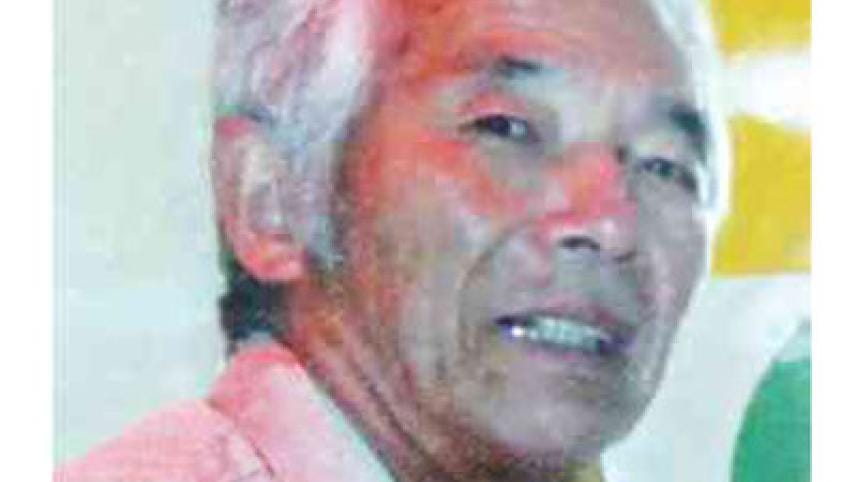A man loved by everyone

A simple and quiet life Hoshi Kunio lived in Bangladesh. He would always greet whoever approached him with a placid smile on his face.
And with this simplicity and amiability, the 66-year-old Japanese man won the hearts of the people of Rangpur, thousands of miles away from his homeland.
"We did not understand his mother tongue and he didn't ours. It was his way of living that earned our respect," said Mostofa Hossain, one of the three men who took Kunio to a hospital after he was fatally shot by unidentified gunmen at his grass farm in Alutari of Kaunia on Saturday.
On hearing the gunshots, the 50-year-old rushed to the farm, some 250 yards from his small grocery shop.
At the spot, he saw a number of villagers had already gathered there.
"He [Kunio] was still alive and we had to do something," said Mostafa.
"Somebody called an auto-rickshaw. I with the help of two others carried him on to it and started for Rangpur [Medical College] Hospital … Even the auto-rickshaw driver loved him so much that he didn't charge even a penny."
But Kunio could not be saved.
"At least, we tried to save him. We were honest to our conscience," he said, looking towards a clear blue autumn sky.
Abdur Rashid lives only yards away from the Kunio's two-acre farm and worked for him on many occasions.
"He would often sit under a tree beside the field and watch us working. He loved the grass. He could spend hours by simply looking at it," said the landless farmer.
"He enjoyed serenity more than anything else and would stop at nothing in search of mental peace," said Salam, who lives near the farm.
Kunio was a man with a dream, said Sultana Khatun, wife of Humayun Kabir Hira with whom the Japanese man lived whenever he came to Bangladesh.
"It's a developing county and a lot can be done for it," she quoted Kunio as saying soon after he arrived in Bangladesh this time.
"But fate had something else in store for him," Sultana said with a sigh.
With a calm and placid demeanour, Kunio went beyond his ethnic and social identity and became one of them.
"Kunio was a good soul. He was a brother. How else could he start a farm in this remote area if we didn't take him as one of us?" said Salam.
"Do you know some reports are claiming that he was killed by the operatives of the Middle East-based Islamic State?" asked these correspondents.
"Jongi [militant]? What jongi? This jongi term is something you people bring to our life. There are no such people here," Salam said furiously.
Three days have passed since the murder but the locals are yet to come out of the shock. Mourning for a good friend, for a brother is still going on in their everyday life, in discussions at tea stalls and dinner tables, in interviews with investigators and journalists.



 For all latest news, follow The Daily Star's Google News channel.
For all latest news, follow The Daily Star's Google News channel.
Comments